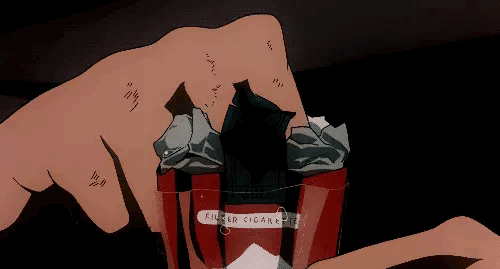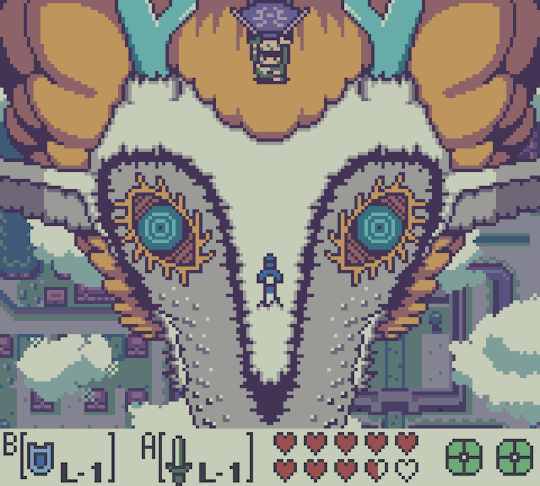[she/her] graphic designer and bookworm | spitting out the bird poop that sometimes is my thoughts. this is just supposed to be a personal archive; if you do not like the bird poop that's alright too.
Last active 2 hours ago
Don't wanna be here? Send us removal request.
Text
a lesson of shape design in wolfwalkers, directed by tomm moore and ross stewart

As always, I'm very late to the party, but I just wanted to take a quick moment to praise one of the best looking animated films I've seen in a while (and mind you, the bar is very high). Wolfwalkers tells a tale about two young girls from very opposite backgrounds that find themselves united by friendship and by the wild nature around them: Robyn, a huntsman's daughter wanting to prove herself as a fighter and Mebh, a girl living in the forest with her mother that can commune with the wolves.
The story itself is a contemporary classic: it was told before in Princess Mononoke, Brave, and many others; just as much as it will be told again and again in future films. A tale of human progress vs nature and an advice for children to respect the natural gifts of our planet, instead of destroying them. But the beauty of Wolfwalkers lies in two very basic principles of design: color and shape.
Shapes are a very powerful tool in transmitting emotion and reinforcing a narrative through less obvious means, and animations specifically can elevate this to a level very hard to achieve in other types of media. When we plan an animated film, we have limited screen time and usually an audience that can't fully grasp all the nuances of the story we are about to tell, but we still have to make clear some key things. Who is our hero? What are his fears and trials? Who are their friends and foes? How should we feel about their story?
This is where shapes come in handy. They are big forms that encompass the outline of a character, helping to simplify details and convey the essential very quickly without using words. A kid protagonist will be small compared to adults, but they can be thinner, almost stick-like, which can indicate frailness; rounder and softer to appear more gentle or even triangular to emphasize a specific body part or characteristic.
Robyn has big round eyes and a thin body, contrasting the way she tries to be more scary and competent hunter despite being kept on a short leash. Mebh, on the other hand, is thicker and feels a lot more solid, immediately being seen as a wild child that grew up free to explore, which is even more evident by the expansive circular shape of her untamed hair. Even without the action and dialogue, it is easy to peg them as complete opposites, but still two young girls.
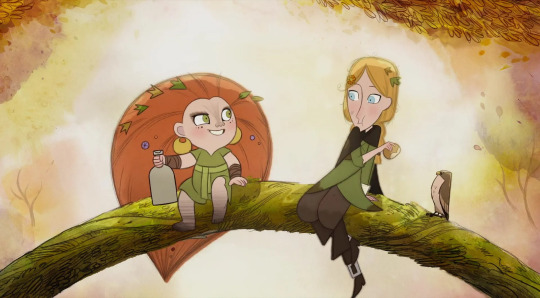
Even in a deeper level, the shapes in Wolfwalker tell very clearly the overarching plot. Every tree, bush, rock and hill in the forest, our main scene, is curved and full of movement. The trees twist and bend to the wind, the leaves twirl, the terrain molds itself in a rythm we follow through every shot. Mebh and her mother, as residents and embodiments of the forest itself, follow these circular shapes by having soft cheeks, big round hair and earrings. What is impressive is how, for a shape that sometimes feel "slower", all of the wolfwalkers' movements are fluid and agile, like the running of a river.
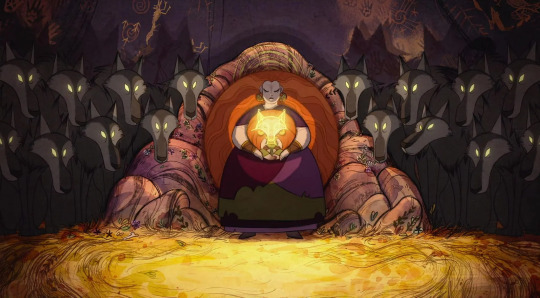
Against the forest, in the background, we have the very angular town, with squared walls, triangled roofs and even geometric citizens, like Robyn's father. All figures are tall and imponent, occupying visual space and seeming bustling, oppressive and chaotic. This emphasizes the strife between town and forest, and immediately tells us who is from what place.
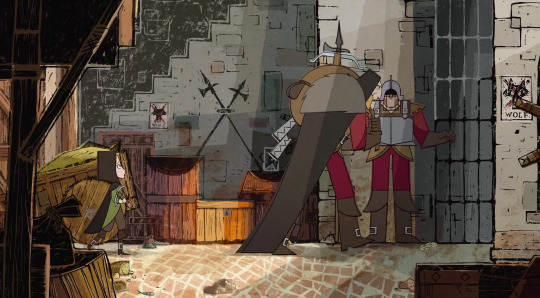
This is where the colors also shine. When we use a lot of similar shapes to define our characters, colors are a great way to add more depth to our design. Robyn is mostly square-ish like her father, but her green shirt shows her connection to Mebh and the forest. The blood-red of the guards' uniforms is the same of the fire used to harm and destroy. And while all this is happening, and changing, the secondary colors are duly adjusted in saturation, brightness and hue to make beautiful and harmonic palettes.
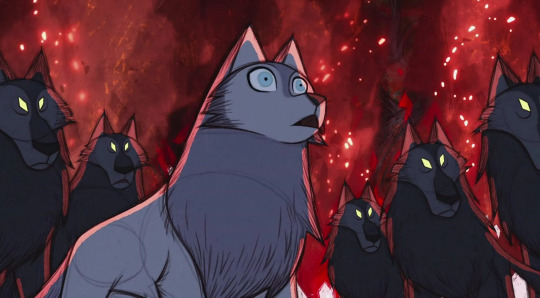
In conclusion, Wolfwalkers isn't great necessarily because of its story. But it shows how thinking about these details in animation can make or break a film. You can have the perfect story apt to win any award, but if your characters aren't selling it visually, it will not be a great animation. You might as well just write a book or something.
To me, animation always will be an artform in itself. So for it to be truly special, it has to prove to us why it's better as is then as a comic, live action, game or any other form of media. What a joy it was to appreciate a story in its best possible presentation. I'm glad Wolfwalkers was made into being by passionate people who knew what they were doing.
★★★★★
#yas reviews movies#wolfwalkers#animation#design#media analysis#concept design#that's not to say the story isn't well done ok#but yeah thats basically princess mononoke in ireland#and im not really complaining tbh
5 notes
·
View notes
Text
it's yapping time: in defense of hello kitty island adventure

I don't think I've seen people talk about this here, but I just saw a review on the hell app (tiktok) about this silly little game that made my blood BOIL.
A creator was saying how he hated the game because it was too easy, there was nothing to do and all quests were locked behind "friendship levels", which took time to upgrade. While some criticisms were very valid, and the game is far from truly polished, this is just the dumbest take I've seen in a while, and of course it ALWAYS comes from adults that enjoy kid's media.
A moment to vent my anger in my native language (because there's some expressions that just don't hit the same in english): seu DESGRAÇADO cara não acredito que um MARMANJO desse fica falando de joguinho pra criança vei vai carpir um lote, lavar uma louça sei lá mulheres não podem ter nada mesmo que uns TONHÃO desses ficam enchendo o saco. INFERNO.

Ok, thank you. Back to the topic. I'm a graduating designer, so we are all too acquainted with those pesky users that think every product ever invented should accomodate their especial needs. This trend results in a worrying lack of products designed for specific age groups, specially entertainment for children. Kids' shows can't be just silly, they have to fit in some in-universe logic and deep backstories so the 20-something year olds that are also watching don't complain on twitter about the "terrible writing".
This doesn't mean cartoons shouldn't be well thought out and with deep lessons for children, we have a lot of good examples for that too. But if you, an adult, is watching this show to decompress and have fun, you BET children also are doing just that. The same applies to games, specially in an industry full of violent titles and with online games slowly dying, like Club Penguin and other safe spaces for children.
For a game to be a safe space for a child, it can't be too overwhelming and has to be generous in the amount of time it gives the kid to explore and just have fun. My friend's brother is 5, and his favorite activity in hello kitty is running around collecting sticks, because that's basically what he understood of the game. And that should be fine!! A child takes double the time any adult would doing the basic tasks and quests, and a game for children SHOULD be as slow as they need!
When you look through this lens, all those accusations fall apart and the design decisions become clear: the friendship system is so that kids don't just spend the whole day in the game to complete it, and can take their time exploring; the gimmicks are simple to accomodate a bigger range of children, and there are a lot of activities that might be boring as fuck for adults but entertain kids for days, like taking pictures with funny poses or running around to catch critters.

Of course, that's not to say hello kitty island adventure is the PERFECT kids' game. I think the price is absurd, and there are small quality-of-life upgrades I would do as a designer. Children do deserve a cheaper game with a bit more dialogue options and a better leveling system. Still, to say this game is boring while not understanding when you're not the center of attention is so immature and egocentric! There are a ton of different games out there, all very very good, so if you can't bear cozy, simple things you can make the sacrifice of playing another title without your beloved sanrio characters. I swear you won't die from it.
That was all for today, till the next one!
#it's yapping time!#hello kitty island adventure#cozy games#video games#HELLO KITTY GET BEHIND ME#but istg sanrio fans are just another flavour of disney adults sometimes#u ppl are too much
4 notes
·
View notes
Text
a pondering review of to kill a mockingbird, by harper lee
[may contain spoilers]

“It was times like these when I thought my father, who hated guns and had never been to any wars, was the bravest man who ever lived.”
There's no thing more tragic and necessary than the death of innocence. It's one of the most fragile parts of growing up: the beginning of understanding, the frustration of knowing so little. At this very fundamental stage of living, we are directly shaped by our environment, absorbing opinions and moral compasses that will become harder and harder to break as the years go by.
As a white woman from a latin american country, I firmly believe in the importance of books like this. When you grow up surrounded by white children, you don't really understand the awful things they say until you're old enough to reflect on the consequence of those words. Still today, more than half a century later than the publication of this book, racism and even worse things are still present in our society, and are still behaviors reproduced by children before they even understand what they're talking about.
To kill a mockingbird shows the conscience we all should develop as we unlearn the prejudices of our parents, as well as a lot of other great examples. In it we follow Scout, a small girl from a quiet Alabama city where everyone knows each other, and her tribulations growing up, learning about the injustices of the world and witnessing her father, one of the city's loved attorneys, get involved in a scandal that shakes the town to its core.
We see things from Scout's perspective, and understand how our prejudice is entirely learned. Scout doesn't understand why people frown upon seeing how well Calpurnia, the black woman who takes care of Scout and her brother, she sees her only for the person she is: a complex person that she hates sometimes and loves all the time, who cares a lot about the siblings and very important in their home. This is only possible because of Atticus Finch, Scout's father and a very learned man, whose parenting is an amazing example to follow for such an old book because he lets Scout be completely free of social norms and notions.

But even with such a pristine example, everyone has faults, and Atticus isn't sure how to prepare Scout to the cruel reality of their town: the outside world won't take very kindly to little girls who question everything and don't care about being perfect housewifes. His kindness is perhaps too utopic to the imperfect society we live in. And this translates to some impactful scenes and a whole lot of self-reflecting. Sometimes there's just no right answer.
Still, it's far from a perfect book, and while I was already bothered by some parts, it was leynes' review on goodreads that made me rethink a lot of my perspective. Because they are right. For a book about racial injustice, there's very little of black points of view, and the characters that appear are a lot more two-dimensional when compared to the nuanced (and most of the time just plain bigoted) white folk of maycomb. Depending on how you read it, Atticus Finch is very much the figure of the white savior, which just muffles the actual voices of minority groups instead of helping things.
Let me just reiterate this: I'm not american. Racism and bigotry are expressed very much differently where I live, so I just hear this by reading others opinions. But it seems like to kill a mockingbird is one of the most read books about systemic racism, and the base of discussions of this topic on some schools. Why is a book written by a white woman the MOST FAMOUS BOOK IN AMERICA ABOUT THIS TOPIC? It just feels like a story palatable enough for white people to pat themselves on the back and maybe think for a bit about the consequences of slavery, but it's definitely unrealistic in its portrayal of this time in american history.
Just like in my review of house in the cerulean sea, I'm fiercely advocating that, instead of trying to talk about stuff we will never experience, we as white people should use our privilege to make other voices louder. The default book about racial inequality should be by a black author.
Still, that's not to say this book is terrible and shouldn't be in school. I'm not as extreme in my opinions as leynes, and I think it's ten times better for a white author to show their perspective instead of trying to guess (and taking space of) the points of view of other minorities. It is still a sensible and well written book that, at the end of the day, does more good than it does harm. Because if reading from the perspective of a white girl makes other white people think about their actions because it's easier to relate, at least that's something, I guess. I would love to know your opinions on this though.
★★★★☆
#booklr#to kill a mockingbird#harper lee#literature#yas reviews books#this was a very humbling experience#i also vow that i'll read more black literature#but i still adore atticus and hope to be as cool and learned as him
3 notes
·
View notes
Text
it's yapping time: main characters whose whole personality is being smarter than everyone

I know this seems completely out of the blue, but I'm currently watching Ascendance of a Bookworm with my bf and I just keep thinking about them. The nerds. The geniuses, actually, that sometimes pop up in some anime and inspire equal amounts of love and hatred in me.
It's a complex topic because smart characters are rarely done well in anime to begin with. Death Note ends up falling apart towards the end, Classroom of the Elite is just kinda stupid and other anime nerds end up being perceived as smart only because everyone else near them is dumb as fuck. I'll not even get started on the Promised Neverland cause that thing still makes my blood boil.
So yeah, we don't have a nice track record there. But there are some nice examples, like Dr. Stone. I still have some nitpicks because of course I have, but all in all it's a solid anime that entertains you with a curious premise and cool execution. And the best thing? Senku is depicted as someone much more intelligent than everyone else not just because he's from a time more technologically advanced, but because he was already much more science-focused than the average in his own time.
He also works well in his context, and his friends' knowledge of modern inventions or lack thereof can be easily explained by the peculiarity of the story. After all, it does make sense if in a rustic post-apocalyptic village people didn't know of some medicines, a very specific knowledge, but knew other stuff because their ancestors managed to make it last through anecdotes.
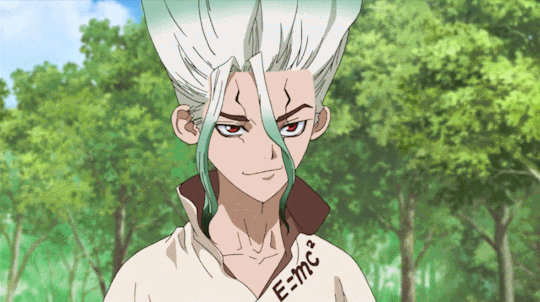
But things get dicey when we are explained the context of Ascendance of a Bookworm. There are a lot of things bugging me in this anime, but one of the small details that bugs me the most is Myne's intelligence and knowledge. She was a normal girl that reincarnated in a kid's body in a fantasy world, so HOW IN ALL HEAVENS DOES SHE KNOW THE STUFF SHE KNOWS?
Okay, okay. I get that this isn't so far fetched, because I'm a girlie of many special interests too. Just like Myne, I love learning about the most random things, and I'm proficient in the hobbies I do even though I'm young. But what annoys me is, in addition to that, everyone around her never knows enough about life than her, or knows just enough to be a match to her. Cooking with sparse provisions? Myne does better even with ingredients she doesn't know. Manual work like making baskets and hairpins? Even with different materials she still does it better than other people. Bargaining with a merchant with a lot more experience than her? He's impressed by her skills.
And this here is the problem: you have to be REALLY naive to believe people didn't do all this shit in a medieval setting. Because if in real life we could do it, in a fantasy world with magic OF COURSE people would do all this stuff. Just because a world isn't that technological advanced, it doesn't mean people didn't do art, complex inventions and the like. And what irks me the most is that POOR PEOPLE ALSO DO ALL OF THIS. I'll even say that in terms of survival and using the most of materials, a medieval person would know better than the average modern person, because we live in a pretty wasteful society.
So yes, I think it was stupid that NOT A SINGLE WOMAN working with weaving knew how to make some flowers for a hair decoration. I think it's stupid how nobody thought of cleaning their hair with some soap, even though nobody likes to live filthy. I also think it's stupid that a poor family with limited resources wouldn't know many uses for each and every thing they get. It's just so weird and uncanny that every adult looks at Myne's inventions and balk as if they couldn't possibly have thought about it (also why doesn't anybody question that this is coming from a 5 year old? lol).
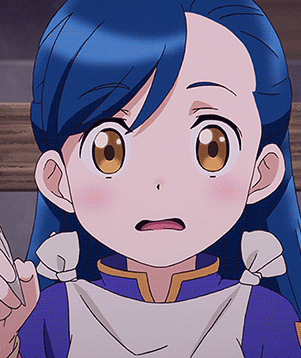
"But Yas", you might say, "this is a fictional world with a fictional character made for some low stakes intelligence power-fantasy, just like most isekai!" Sigh. You're right. I know. Truth is probably nobody cares about this stuff but me, and there's no reason they should, either. I guess it's just wishful thinking, in the end. I love the care and thought authors put in their work, and I also know smart characters CAN be done right, so it's just a shame that in anime it is so rarely done. But this applies to a lot of stuff, so it doesn't actually matter that much lol
In the end, this is just something that's been on my mind that I wanted to put out to the world, so don't be too hard on me, okay? I still appreciate Ascendance of a Bookworm despite its many flaws, and it doesn't mean people that love it are dumb!! I just love it when authors are also nitpicky like me lmao
I think I was just too hyped up and then disappointed by the story, as many people told me I would absolutely love this anime. Just shows how we can't trust blindly another's opinions, and it's best to see things completely and form opinions on your own.
#its yapping time!#ascendance of a bookworm#anime#dr stone#it makes me sad to bash a girlie like this#specially a book girlie like Myne#im sorry darling i swear i dont hate you they just did you dirty#yas reviews anime
14 notes
·
View notes
Text
an hyperfixated review of the apothecary diaries season one, by natsu hyuuga
First, I just wanted to say that I NEVER expected I would be here talking about this. I started Apothecary Diaries with the same jaded tiredness of someone who doesn't consider themselves an otaku anymore, so it has to be an EVENT for an anime to be truly enjoyable. After some time I just got bored of all the isekai and harems, shallow self insert characters, braindead action and hypersexualization of women, so you can imagine how often I watch something that has come out recently.
But this thing has consumed my life and my thoughts. It has made me go through a rabbit hole of ancient chinese history and culture, and I actually can't get enough of it. Apothecary Diaries managed to do a very rare feat in the chaotic anime industry: cover all its bases brilliantly. There's the perfect amount of everything a well-thought story needs: an incredible animation, deep and believable characters, an intriguing plot without any apparent holes, solid worldbuilding and just the right touch of social issues to make you think.

In an unnamed empire totally not a copy-paste of ancient China, we follow the story of Maomao, a poor apothecary's apprentice that gets kidnapped and sold to the imperial palace to work as a servant. But soon, her abilities of reading and writing (rare for a peasant) and poisonous plants get her noticed by Jinshi, an eunuch responsible for overseeing the famous inner palace: the garden of women where the concubines of the emperor live. Maomao then starts working as a food tester for one of the four most important concubines, to ensure she isn't poisoned in the politics of the palace, but ends up getting roped into more complex challenges and mysterious events.
Despite the clever plots and solutions in each episode, the true star of the show is the character of Maomao herself. She is a brillant example of a smart female protagonist, perfectly capable of solving problems because of her love for her job but still with her flaws and peculiarities that only make her more endearing. She is calculating and detached, but still shows a great knowledge of the inner palace's hierarchy, keeping her posture but discreetly helping people how she can.
Maomao is THE perfect example of a girls girl, and every other media should learn from her character. She has a strong personality and doesn't really like appearing too feminine or demure, but it doesn't stop her from being kind to her peers, helping the concubines and servants alike and never judging them for placing so much importance on their sexuality, despite not being interested in these affairs herself.

And despite having strong morals, Maomao is also keenly aware of her place in society as a poor woman. She know how insignificant she is to those in power, but instead of making rash decisions she works around the system. And this makes her the perfect counterpart to the other great reason to watch this anime: Jinshi.
Jinshi is an eunuch that supervises the inner palace, always butting himself in every problem to make sure the concubines are taken care of. He is a man born with everything: well-spoken and smart, signs of a great education; clearly high ranked, which makes him rich and powerful; an ethereal beauty that captivates every woman in the palace and loyal servants at his beck and call.
So when Jinshi discovers Maomao's great knowledge and usefulness, he is quick to think of her as another pawn to do as he says. He couldn't be more wrong. As they solve mysteries and develop a tenuous friendship, both of them are forced to change their perspectives: Jinshi is shocked to see a woman that doesn't fall for his charms and starts to truly admire Maomao as a person, and Maomao learns to trust a bit more and not judge a person by their status.

This whole ordeal leads to some of the funniest scenes I've seen in some time, and truly one of the nicest relationships I've seen lately. It helps a lot that Jinshi respects Maomao's intelligence and trusts her judgement, but his worry about her ingesting some unknown poison is very cute too lol
The side characters are adorable too, specially Maomao's sisters and how they treat her like a baby, and everyone has their space to shine. I think my only critique would be that the concubines are still too much sexualized. I believe firmly that you can have characters that show their sexuality without having to have giant boobs barely covered, specially in a historical context. But I know how Japan's anime industry works, and if this was the least they could pander to a male audience, I'll take what I can get.
Overall, even if all of this isn't enough to catch your attention, I would recommend Apothecary Diaries just for the insane animation it has. The colors are beautiful, the movements are fluid and there are scenes I kept replaying because of how well scripted they were. This is an unexpected gem lost among the slop, and I can only hope it keeps going strong in this second season!
★★★★★ ♡

#anime#yas reviews anime#apothecary diaries#kusuriya no hitorigoto#kusuriya anime#okay jinshi you femboy i wasnt aware of ur game#also as much as i think theyre cute together#maomao is 100% ace or at least sapphic cause aint no way
32 notes
·
View notes
Text
so, i ♡ lists: top 5 little indie games i adore
Not only of books lives a nerdy young woman! I also play a lot of games and, as a graphic designer, I'm fascinated by anything colorful and artfully composed. So, because my little crow brain likes to collect stuff, I collect things I like through lists!!
And where better to start than my ultimate gaming passion: cozy indie games. I've played some, not a lot, but enough to really like the genre, so here's 5 charming games if you want to start somewhere (in no particular order).
Oh yeah, I couldn't start this without making a shoutout to the OG cozy game, Stardew Valley, which catapulted me into this whole thing to begin with. Even after more than 360 hours into this game it still feels new, and the love ConcernedApe has for his creation is felt through every pixel art and dialogue. Definitely a classic for me.

Now, let us start!
TOEM
In honour of this amazing thing getting a sequel(!!!!) let's start with one of the most charming indie games I've played. In this game, you are a little creature that takes on a journey to snap photos and climb a mountain to experience "TOEM", whatever that could mean.
Through helping other beings and fulfilling requests with your photos, we are encouraged to take our time discovering every nook and cranny of various places, and to capture warm memories along the way.

TOEM is a very short but rewarding experience, great for casual gamers looking for a very low stakes adventure and completionist people that love to uncover every secret and achievement. The puzzles aren't hard but offer a nice challenge sometimes, too. God, I can't wait for the sequel!!!!
You can find TOEM on Steam, the Switch e-shop and other consoles.

A Short Hike
This is one of the quintessential cozy games, that is full to the brim with cuteness and the childlike wonder of exploring. In A Short Hike, you are Claire, a crow-like bird that wants to hike up to the top of Hawk Peak in order to get better cellphone signal. But the path is not easy, and as you explore the little island you're in, helping strangers along the way and collecting feathers to make you fly better and higher, you truly understand how a journey is not about its ending.

Amongst beautiful scenery, charming characters and a fantastic soundtrack, I wish I could get lost in this island and never come back to the real world. The only fault of this game is that it ends, but it had to end at some point. This one is also perfect for those who like to explore places and admire views, but there are platforming aspects that offer different challenges than TOEM. In my opinion, it's the perfect game to introduce someone new to gaming, with its calm atmosphere and forgiving controls.
You can find A Short Hike on Steam, the Switch e-shop and other consoles.

Coffee Talk
Now for a change of pace. Coffee Talk is also an amazing introductory game for those wanting to experience visual novels but aren't used to just blocks and blocks of dialogue. With great pixel art to make the plot even more palatable and a nice little minigame, we can fulfill our secret dream of absconding from our regular lives to buy a café and befriend our customers.

The story is simple but actually really interesting, spinning the magical realism and intertwining real-life issues in a really nice way, albeit very on the nose lol :v our regulars are from various fantasy races, like elves, orcs and such, and as we get to know them their struggles feel very real; it's so easy to get attached to them it's crazy. And as your café becomes a safe space for introspection and different problems, you too start to wish for a place like this in real life.
Coffee Talk episode 2 is also very good despite adding little in terms of game mechanics, but I find that formula to be very nice already, so it's a nice playthrough too.
You can find Coffee Talk episode 1 and 2 on Steam, the Switch e-shop and other consoles.

Wilmot's Warehouse
Our last two games involve organizing, but in very different ways. Wilmot's Warehouse is a very simple and square puzzle game with a humorous plotline: you are a very dedicated employee of an Amazon-esque platform, and your sole job is to organize the shop's goods in a warehouse and quickly attend to your other colleagues.

As you get through days of work and upgrades to help you in the warehouse, the game gets more and more chaotic. Some people find this game too fast paced and say they feel anxious playing, which is totally fair, so this might not be your jam. I can just speak for myself, but as someone extremely anxious, especially while gaming, Wilmot's Warehouse was surprisingly soothing. The learning curve was easy and the game encourages you to play more than a single time, so the pressure of the timer got overruled by the satisfaction of organizing boxes by color or by vaguely defined themes.
You can find Wilmot's Warehouse on Steam, the Switch e-shop and other consoles.
Unpacking
But if Wilmot's Warehouse is too much and reminds you of your day job, that's not a problem at all! Unpacking still gives you the joy of organizing but in a much more casual and story-driven way. Through a photo album we follow the growth of a kid into an adult in different homes through her life, organizing her belongings in their right places but also with our own personal way of organizing.

This window into someone's life through only their belongings is at the same time very personal and very universal, with a lot of nostalgia sprinkled in every book, plushy and coffee cup. Makes you want to revisit all the places that were once "yours", no matter how simple or small they were. What was important and not important, the person you grew into as the years went by.
Unpacking is a short game made for everyone, from the clean freaks that will organize every book by size and color to those who will put the diary below the pillow because they did so in their youth.

And with that, I finish this list! It was so nice revisiting games I've already played but weren't long or profound enough for a post. I love sharing my favorite experiences with people, so I hope any of you that finds this thing feel joy and warmth playing any of these games. Until the next one :)
You can find Unpacking on Steam, the Switch e-shop, other consoles and mobile devices.
#so i love lists#videogames#games#indie games#gaming#toem#unpacking#a short hike#coffee talk#cozy games#cozy gaming#wilmotts warehouse#media list#nintendo games#pc games
9 notes
·
View notes
Text

sold
it turned out so beautifully 🥹








and the plum blossoms show which way the lid fits 🌸

12K notes
·
View notes
Text
i love how a big part of elizabeth bennet’s character is that she is obviously very smart, she is very observant, but she can easily be led astray by her preconceived notions, by things that she already has convinced herself of believing. and this is most obvious by her not seeing mr. darcy’s proposal coming at all, because girl that man was openly flirting with her. i don’t think this is shown a lot in the movie or the tv series, but he keeps teasing her, answering her witty remarks with a smile, the whole “i am not afraid of you” thing. like, charlotte saw it coming, colonel fitzwilliam definitely saw it coming, the gardiners knew as soon as they saw them together later in the book, mr darcy was not as subtle as he thought he was being
seriously, god bless you jane austen for giving us this romance of two fucking idiots constantly misunderstanding each other’s actions and intentions. god bless you for giving us mr “aha so like what do you think of your friend’s marriage? you wouldn’t mind living away from your family when you marry right? oh, no reason, no reason, just a random thought. and what do you think of rosings, you know if hypothetically you were ever a guest there, no, no reason hehe”, and miss “i wonder why i keep coming across mr darcy during my walks, i even made sure to tell him that this is where i usually take my walks so he can avoid me but we are still??? running into each other???? and he keeps asking me all these strange questions too, what a weirdo”
just, two idiots that were made for each other
5K notes
·
View notes
Text
a delighted review of emma, by jane austen
“Seldom, very seldom, does complete truth belong to any human disclosure; seldom can it happen that something is not a little disguised or a little mistaken.”
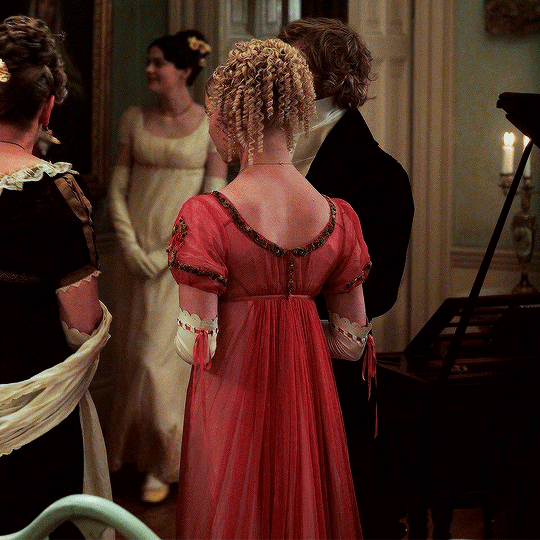
do you ever read a book so charming you remember you had a blog for book reviews? This novel single handedly made me come back to the realm of writing things instead of just drawing things and attending uni, in a fashion only Jane Austen could do. I have a lot to say here, so buckle up friends!
To start, let me just say that the various influencers I trust the most on booktube all adore this book, so I started reading with high hopes and was promptly crushed with the knowledge that, yes, for the first time, an Austen heroine was infuriatingly annoying and egocentric. Emma is a young woman thrust in the revered position of a high society lady, the richest and most notable of her peers, and with that position and a lot of enablers as family and friends, it's no wonder she sounds like a spoiled brat for the first chapters of the book. This disheartened me, because as much as I love a flawed main character, there's only so much vanity I can endure, specially coming from rich people.
I was so sad to think I was going to hate this book, but thank all gods I was wrong! These flaws so well described paved the way for one of the most beautiful comings-of-age a girl could have, enrapturing and charming you to Emma just like every other character in the book, but also making very clear how her actions caused pain for a lot of people. Her growth and the forwardness of the descriptions about feelings and morality make this book much more relatable to a modern audience than other Austen books, which is a great thing if you want to start somewhere. Endure these first chapters of long descriptions and insufferable characters and you will soon not be able to put this book down.
Another great point was the comedy and just overall fun of the plot. The cast is varied in disposition and the young ladies and gentlemen entangle themselves in gossip, rumours, awkward situations, rivalities and much more, so every revelation makes you even more curious about the ending.
You will not like this book if you aren't fond of more discrete and nuanced feelings and long descriptions of properties and parties and people. But then again, this means you'll not like any Austen book, probably. Because of the cultural and temporal differences, some things would be unacceptable by today's standards, and because nowadays romance needs to be so brazen and dramatic it might seem like this aspect is superficial in a Regency era book. Still, I pray you give this book the chance it very much deserves, and you might surprise yourself with how much you end up liking these characters. Truly a timeless piece.
HEY!! THERE'S SPOILERS UNDER HERE!! to see my rating jump straight to the end if you want :)

Welcome to the fun part of the review >:)
Emma's development throughout the book is easily the best plotline in the book. Despite really being entitled and annoying at the start, you'll soon discover that her father and best friend are kinda right in saying she's oh so sweet and caring. My turning point for her character was when I really understood just how much pressure was she under as the mistress of her house, and how much she was conditioned to grow up quicker than she should and be the perfect daughter for her father and the perfect lady for appearances. Of course she would be bratty and blind to her own faults, of course she would constantly bicker with mr Knightley. She's just a girl wanting to escape her responsibilities and wanting more than a quiet life as her father's caretaker.
Elton's proposal in the carriage really sold this book for me. Emma made a lot of mistakes out of misplaced confidence and immaturity, ignoring Knightley's advice, but the moment she realises her errors she is immediately ready to repent and shamed by her actions. To then give her even more anguish through an insulting proposal alone with a man (and with his personality!) in a carriage where she couldn't escape, to then make her force herself to be her perfect self as to not create a scandal and worry her relatives. Just how strong this young girl is?
Then you start to realize that with a bit of growing and advice from friends, Emma's very kind and gentle side comes out more and more, and while she still is very flawed through the rest of the book, it is now very much clear how she's just learning to be an adult, and this made me feel so seen. Even today, there's so much pressure to be mature so early that we forget it's hard to grow up and change as a person. This is why I started rooting so much for Emma; she continued to be involved in the chaos she started and even said some mean things, but all the time I was just hoping she would learn and become a better person. And became one she did.
What's more interesting is that she was hurt too, and used by Frank Churchill only for his own goals, in a move arguably more offensive than the naïve attempts from Emma to help her friends find marriage. And even when slighted, she has the humility to answer kindly how she hurt others more, and quietly accepts that many of the things she ends up suffering were caused in part by her own actions.
There are a lot of flawed characters that stay this way by the end of the novel, but they are just people. Their flaws are well defined but so are their good sides. Mr. Woodhouse is a neurotic hypocondriac that just wants his loved ones to stay well; Mrs. Weston adoration of Emma is bad for her too, but serves as her safe spot when things are rough; Jane Fairfax is a sweet lady but is under great mental stress and thus is more irritable and untrustful; Frank has a good heart but his vanity and self interest come first sometimes; and mr. Knightley, as the most thoughtful, shrewd and just character in the book, succumbs to jealousy and ends up "blaming and lecturing" his loved one in a way "no other woman in England has borne".

I left mr. Knightley for last because he fascinates me quite a lot. He is very much the opposite of mr. Darcy from Pride and Prejudice, being the role model and better person of the pair instead of a misunderstood brooding man. Mr. Knightley is always right and his judgement is spot on, which he tries to relay to Emma to no avail, and ends up causing much of their quarrell. I kinda wish he would be just a little less right, because despite not being a perfect character in any sense, he shows his humanity just towards the end of the book (and then promptly charmed me). I just think it's a little unfair that Emma is expected to have the same level of thought of a man so much older than him, so it would be nice if he were just a bit less observing, maybe. Don't get me wrong, he admits to being too harsh on her and admits his faults towards Harriet, but still his advice never got Emma in a tough spot, and that would have been interesting to see...
Still, I need to talk about the elephant in the room. The huge age gap between Knightley and Emma, a whole 17 years, bothered me through the whole book, but specially in the end when Knightley says he has been in love with Emma since she was thirteen. Emma has been influenced by Knightley since she was young, and it's veeeery lucky he's as good as he is, otherwise this would be the most vile case of grooming I've read so far. But even though my 21st century morals made this icky for me, I can put that aside to analyze their romance through an 18th century mindset. Arranged marriages to men twice as old as you were very common, and as weirds as it is, I just can't review a book without considering the context. So this one remains a favorite and one I'm sure I will look upon with fondness.
Emma truly is a delight to read, and with all its faults I can't give it anything less than a 5 star rating. I think Jane Austen is just my comfort writer, because even as a person who thinks a lot about class, power and bigotry in the context of books and other forms of entertainment, sometimes it is just pure bliss to imagine yourself in a quaint little town in England, with your only problem being the fits and fights of rich people with nothing to do, and just appreciate good writing...
★★★★★ ♥
#booklr#literature#english literature#emma#jane austen#yas reviews books#emma woodhouse#mr knightley#the complete 180 this man made in my esteem istg#but youll still always be an old geezer in my head im sorry#also justice for miss bates i love me some yappers
5 notes
·
View notes
Text
a rambling review of sense and sensibility, by jane austen
[this contains spoilers for the end of the book. Proceed with caution]
"I wish, as well as everybody else, to be perfectly happy; but, like everybody else, it must be in my own way."
As my second time reading Jane Austen, this experience was at the same time vastly different and, as expected, similar to Pride and Prejudice. For me it's impossible to analyze one without comparison to the other, them being books by the same author in the same setting, but I believe that doesn't demerit any of them. The plots have a lot of similarities too, and Austen estabilishes well her archetypes, but it was still different enough for it to not bother me.
While Pride and Prejudice's strenght lies in the sweet fantasy of falling in love with rich men that aren't complete assholes, and in opposing personalities that are very interesting to observe, Sense and Sensibility delivers much more of a moral and political discussion, far more directly too. The romance between the two main couples is almost secondary in face of the relationship between the sisters Elinor and Marianne, and their shared hardships in a social circle full of vain, egotistical and materialistic people. It almost feels as if the sisters, Elinor in specific, are there to be a model of how a woman should behave according to Austen, and are constantly put in situations that compare them against characters almost cartoonishly flawed with the worst of high society at the time. Even the impulsive and at times childish Marianne is vindicated when compared to her peers.
It's not like we don't get the classic tense moments of doubt for the feelings of the romantic interests here, and some yearning sighs and swooning there, but the focus is much more on the characters' hubris because of their flaws. This is expressed over and over through Willoughby's own demise and regret of breaking Marianne's heart; through the funniest irony possible for mrs. Ferrars after disowning his son Edward; so on and so forth. Even the better characters of the story — like sir John Middleton and mrs. Jennings — have their part in the drama, when their well intentioned nature melts into excessive meddling and a lack of tact bordeline offensive.
The answer Jane Austen gives to all these characters is an impressive growth for most of them, with reactions appropriate to the gravity of the turmoil the Dashwood sisters go through between London and Barton. Sir Middleton and mrs. Jennings repay their faults with true kindness towards the sisters, mrs. Ferrars tastes her own medicine and is forced to go back on her harsh words and accept some things she didn't want to, and Marianne most of all had the kind of maturing that only happens after a heartbreak, emerging as a better and less impulsive person that values her friends and family as much as finding the perfect husband.
The only one without this much development is Elinor, which is a shame considering she isn't a perfect character (though it sure feels like Austen is trying to tell us this sometimes). Still, I think it's ok for a piece of media to have characters that don't grow as much; we all have different paces, and Elinor was already very mature for her age.
These descriptions of stereotypes of high society, gossip and discussions of money and properties take up a good chunk of the book, which makes it kind of slow to catch up. Still, conversely to Pride and Prejudice, we get a strong message of the true nature of the rich. The lavish parties and gatherings turned stiff because of the atendees, and the supposed elegant ladies were either bitter and greedy or just plain annoying. But it was fun to have main characters that didn't keep up with all that bs for a change. The two sisters are definitely the soul of the book.
One of my only disappointments with Sense and Sensibility was, ironically, the romance. Edward Ferrars feels like a dull copy of Darcy, and was so removed from the general events of the book that I honestly didn't believe he would be the romantic pairing to Elinor until the last few pages. Even worse, the age gap between Marianne and colonel Brandon and her (implied) unrequited feelings for him until the very end irked me. I really loved Brandon as a character, but him and Marianne just didn't have a SINGLE drop of chemistry.
Still, even though there's little to complain, this book wasn't AMAZING to me either. The cast annoyed me more than entertained me, and I finished the book completely neutral about it. Though, I have to admit it: the plot twist of Lucy eloping with Edward's brother was very unexpected. The chaos of the latter 3rd of the book was my favorite part. Overall a fun book with a nice little message and nice main characters.
★★★☆☆
#booklr#sense and sensibility#jane austen#yas reviews books#im glad to know the girlies from the 1800s were as fed up with annoying guests as i am centuries later#imagine having people u dont even like stay in ur house for MONTHS
0 notes
Text
a review full of childlike wonder of the wizard of earthsea, by ursula k leguin
[may contain spoilers]
“A rock is a good thing, too, you know. If the Isles of Earthsea were all made of diamond, we'd lead a hard life here. Enjoy the illusions, lad, and let the rocks be rocks.”
Ever since I've started reading A Wizard of Earthsea, two thoughts have been circling my mind:
How the fuck is Harry Potter more acclaimed than this?
Wow, the Ghibli movie really doesn't do it much justice.
Earthsea is a simple story in its core, yet so groundbreaking in so many details (and in such a subtle way too) that I just understood how special it is after I finished reading. Within a third of the size of staples in the genre like The Name of the Wind (which has a similar plot and worldbuilding as well), it manages to tell an adventure that would captivate any child and entertain any adult, even those very serious about realism in fiction like me. Although we fly by many important events in this 180 page book, each one of them feels carefully thought out, a perfect balance between the sentiments of our protagonist and the hard laws of the world.
The archipelago of Earthsea feels alive and solid under the words of this book, and there wasn't a single moment where I was fished out of the immersion because of a poorly explained piece of lore or a boring infodump about the details of commerce that I don't really care about. LeGuin weaves together hard worldbuilding and the childlike wonder of unexplained mysteries in a beautiful way, encapsulating a joy in discovering a new world that I haven't felt in years.
Of course, nothing is perfect, and sometimes I wish there was a bit more of detail about landmarks, people and even Sparrowhawk. Still, it somehow works because it brings out the imagination I had as a child to fill all of the blanks myself. In this process I the archipelago of Earthsea became mine too. I love descriptive books that paint a vivid picture of a place that exists only in the dreams of the author, but a change of pace sometimes can feel like a breath of fresh air, and this is how Earthsea felt for me.
But the most special feature of this book is the way the author uses narrative. Her way of telling the story of Sparrowhawk as an omniscient narrator, giving away teasers of later events but keeping the thrill of the journey in its twists and turns almost feels like a legend told by fireside, of a hero long gone. We know of Sparrowhawk's potential as a hero and we know he will be a great wizard, but he still feels human even with this semi-detached style of narrative so common in legends. Because although his power is vast, his hubris is entirely human.
And between dragons and magic and islands, Earthsea discreetly brings a message of balance and self-discovery, that is intrinsically connected to Sparrowhawk's development as both wizard and person. The wisdom passed through the pages doesn't feel like the author giving some unwanted lecture, but more like a sage advice that I truly am compelled to take seriously.
I can't help but love books like this, able to charm me with a wonderful world and fantastical characters, but also able to bring me reflection about human nature. By naming the shadow with his own true name, a gesture so significant in Earthsea, Sparrowhawk made peace with the dark parts of himself, that his own arrogance brought to life. And by understanding all parts of himself, he became a better wizard and finally found a bit of peace. It is a journey we all must take, albeit a less fun and more plain one.
★★★★★
#booklr#yas reviews books#earthsea#a wizard of earthsea#ursula k. le guin#this felt like being 12 again#but like in a good way
12 notes
·
View notes
Photo
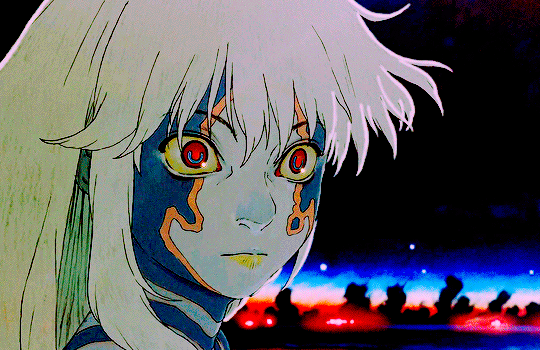


PUPARIA (ピューパリア) — 2020 | dir. Shingo Tamagawa
37K notes
·
View notes









